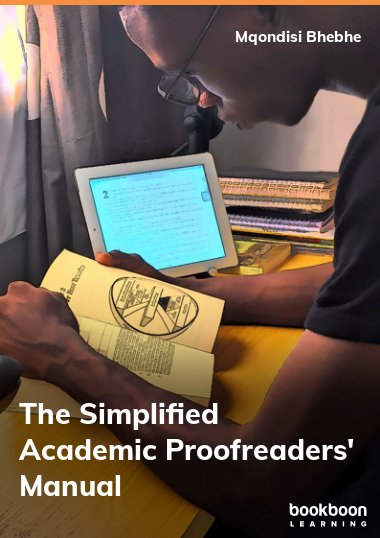Are you a lecturer? A proofreader? A tutor? Or a diligent student seeking to improve their work before submitting? This proof-reader’s manual provides a common platform for all parties and helps them think from the same standpoint. Through its skilful explanations, it helps students understand how to write assignments and measure their own progress and provides a diligent step-by-step guide on how markers should approach the student’s work; at the end, students write good/up-to-standard assignments while markers have a fair view of the work, simplifying everyone’s job.
About the author
Mqondisi Bhebhe is an academic, a Management graduate and publishing author in various disciplines, but with more emphasis on Academic Writing skills and Business/Economics areas. He has been, and is still, teaching at tertiary level and enjoys sharing knowledge and experience with readers from all over the world. This is the second of the 5 coming editions of the "simplified" series, with the first one already published being the Human Resource Management Solutions Textbook and a few other projects on the pipeline, all aiming to make studying easier for you. This guide is not intended to replace/supersede any existing academic writing guides as preferred by individual institutions but it will certainly give you all the basic understanding on what is required in many academic assignments. Please enjoy this work and look out for the other volumes to hit your shelves soon.Happy studying!

